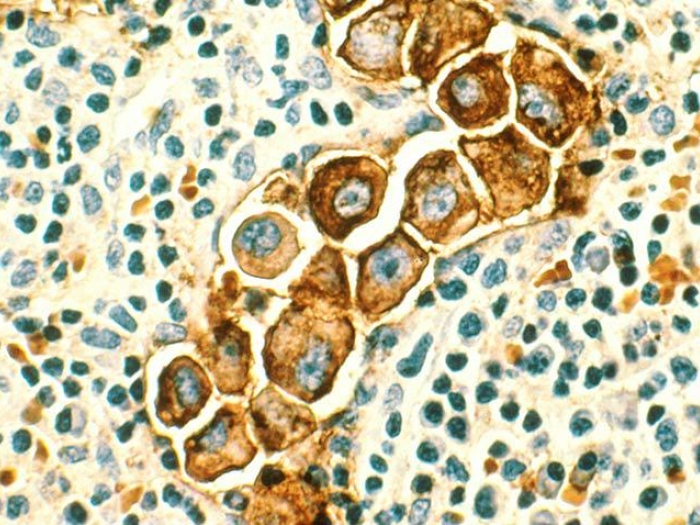A technique called relaxing acupressure could offer a low-cost way to manage symptoms, including sleep loss and fatigue, in those with breast cancer.
11:00 AM
Author |

Acupressure helped reduce persistent fatigue in women who had been treated for breast cancer, a new study finds.
SEE ALSO: A New Approach to Preserving Fertility During Cancer Treatment
Fatigue is one of the most common long-term effects of breast cancer treatment. About a third of women experience moderate to severe fatigue up to 10 years after their treatment ends.
The study, published in JAMA Oncology, found acupressure reduced fatigue by 27 percent to 34 percent over six weeks. Two-thirds of women who did relaxing acupressure, a particular subtype of the healing method, achieved normal fatigue levels.
"Fatigue is an underappreciated symptom across a lot of chronic diseases, especially cancer. It has a significant impact on quality of life. Acupressure is easy to learn and patients can do it themselves," says study author Suzanna Zick, N.D., MPH, associate research professor of family medicine at the University of Michigan.
Acupressure, derived from traditional Chinese medicine, involves applying pressure with fingers, thumbs or a device to specific points on the body. Researchers tested two types of acupressure: relaxing acupressure, which is traditionally used to treat insomnia, and stimulating acupressure, which is used to increase energy. The two techniques differ by which points on the body are stimulated.
Researchers recruited 424 breast cancer survivors from the Michigan Tumor Registry. Participants were randomized to relaxing acupressure, stimulating acupressure or usual care, which includes typical sleep-management techniques. The women were taught how to find and stimulate the acupressure points so that they could perform it at home once per day for six weeks.
At the end of the trial, both acupressure treatments resulted in significant, sustained improvements in fatigue. But only relaxing acupressure also improved measures of sleep quality, such as disrupted sleep, and overall quality of life.
Given the brief training required to learn acupressure, this intervention could be a low-cost option for treating fatigue.Suzanna Zick, N.D., MPH
Acupressure vs. acupuncture for cancer fatigue
Previous studies suggest acupuncture might help curb fatigue. But acupuncture is often not covered by insurance, plus it requires people go to a practitioner once or twice a week for at least six weeks.
SEE ALSO: How Paid Sick Leave Lowers Financial Burdens
Acupressure, on the other hand, proved in this study to be easy to learn, and it can be done at home.
Study participants had 15 minutes of training and were able to accurately locate the correct acupressure points and apply the right amount of pressure. Some women reported minor bruising at the acupressure sites. About 12 percent of the participants discontinued the study because they felt it was too time-intensive.
"Given the brief training required to learn acupressure, this intervention could be a low-cost option for treating fatigue," Zick says.
Next, the researchers are developing a mobile application to teach acupressure. They will also investigate why acupressure impacts fatigue and whether it is also effective for patients in active treatment and with cancers other than breast.

Explore a variety of healthcare news & stories by visiting the Health Lab home page for more articles.

Department of Communication at Michigan Medicine
Want top health & research news weekly? Sign up for Health Lab’s newsletters today!




